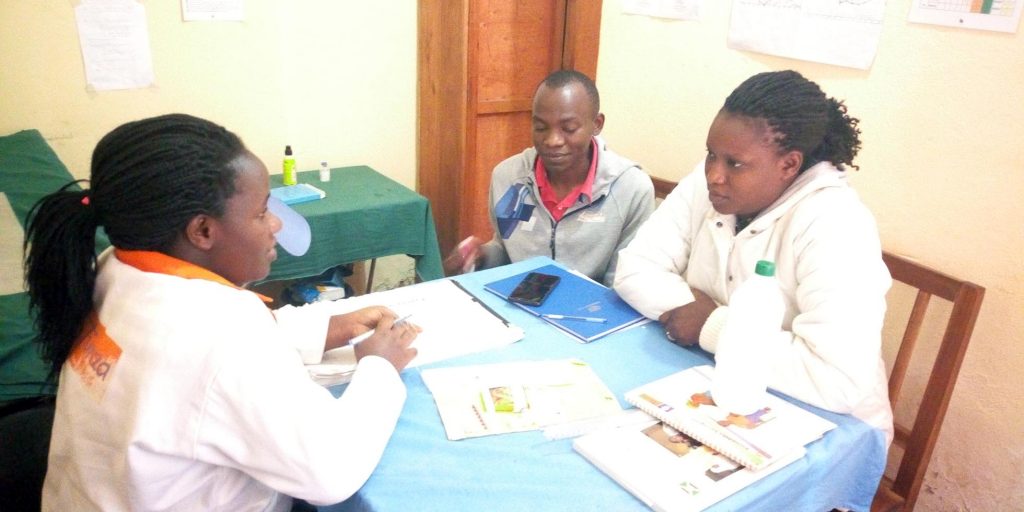Interview with Aline Niyonzima on October 30,2020
Family planning is defined by World Health Organisation as the ability of individuals and couples to freely choose the number and timing of their children.
The non-governmental organization Iprosarude (Initiative for the Promotion of Rural Health), through its polyclinics, has also focused on reproductive health. Support is provided through sensitization on sexual and reproductive health in the communities through a joint program-Menyumenyeshe, in partnership with Care International, and through the services set up by Iprosarude in its polyclinics.
Mrs. Aline Niyonzima, a nurse assigned to the family planning service, explains how contraceptive methods are used at the Gitega Hope Polyclinic.

“Dialogue within the couple is essential before making a decision and the husband must accompany his wife in this process. » All these contraceptive methods are explained to them and the couple chooses the preferred method. The provider is just there to provide information,” says Ms. Niyonzima.
In case their choice concerns a method that the provider deems unsuitable for their health, the provider has the prerogative to enlighten the couple again so that they choose another method. If necessary, it is essential to allow women to switch immediately to another method of contraception.
As for side effects, this health professional reassures: ‘’Any medication always has primary effects and side effects related to the treatment.This means that even with these contraceptive products, there can be side effects. This is why it is always advisable to come back to the health care structure for more advice and for the management of these side effects, which are free of charge’’.
There are many challenges
Socio-cultural barriers such as religious beliefs, pro-natalist attitudes (children are considered an asset or a family with only girls continues to procreate in order to have a boy), rumors and prejudice, lack of information, quality of reproductive health services, side effects of medication, etc., are also factors that affect the quality of reproductive health services.
For this, Aline Niyonzima, maintains that there is always training for providers in the proper management of side effects. “Currently in all the polyclinics of Iprosarude all the providers are trained because she fights for health promotion. In all Iprosarude’s health structures, the quality of care is of the utmost importance’’.
E.Allickan Niragira


Recent Comments